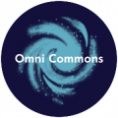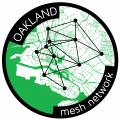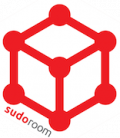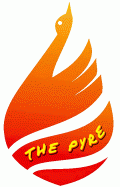A sample text widget
Etiam pulvinar consectetur dolor sed malesuada. Ut convallis
euismod dolor nec pretium. Nunc ut tristique massa.
Nam sodales mi vitae dolor ullamcorper et vulputate enim accumsan.
Morbi orci magna, tincidunt vitae molestie nec, molestie at mi. Nulla nulla lorem,
suscipit in posuere in, interdum non magna.
|
Last week, a student in the Cyberspace Ethnography course taught by Maximilian Forte at Concordia University sent me some questions for a class presentation on The Virtual Campfire. Below are some of my reflections on the process of conducting virtual fieldwork, the advantages and disadvantages of digital ethnography, issues of immersion and techno-utopianism, and what it means to be a “digital native” studying and writing about the experiences of those grappling with the uncomfortable process of integrating new communication technologies into everyday life.
Do you think there is an accepting view towards doing an ethnography online?
Among those who have an understanding of what an ethnography is – a minority even among the highly educated – I would say most definitely. It’s certainly become well-known among the digerati thanks to the highly public work of, for instance, Mike Wesch at KSU (a professor of anthropology currently working on an ethnography of YouTube) and danah boyd (not “technically” an anthropologist, but a staunch advocate of ethnography via her work on youth and social networking sites).
In my research with danah through the Berkman Center, which focuses on pro-self-harm websites and online communities, it’s become clear to me that ethnography is a critically important methodology in promoting empathetic understanding of youth online practices and combating the moral panic that’s driving Internet censorship campaigns and related policy issues. Unfortunately, quantitative data tends to trump qualitative research when it comes to policy. I had to take statistics twice because I hated it so much I dropped not only the class, but my second major in psychology. I’m glad I came back to it, because in the world of research it’s important to know how to critically analyze a wide range of methodologies and the biases inherent in them. Anthropology as a discipline tends to be overly self-conscious, while psychology is just the opposite. Combining the confidence of quantitative psychology studies with the sensitivity of ethnographic accounts is truly empowering
Based on your work what were the advantages and disadvantages to doing an ethnography online? Any major obstacles encountered?
Basically, I make a habit out of interpreting the human interactions around me as though they were originating from a bunch of crazy space monkeys. Then the whole cyborg element doesn’t seem so much of a stretch.
But seriously, as I mentioned in my thesis one of the most problematic aspects of virtual ethnography is the voyeuristic nature of ‘lurking’- being able to watch without being seen. I attempted to compensate for my voyeurism by participating fully in the communities I was researching, skirting along that longstanding anthropological borderline between participation and observation. People reveal a lot online, which is one of the greatest advantages of doing virtual fieldwork. Inhibitions are lowered, because social networking sites induce an illusion of privacy. One of my greatest difficulties was making distinctions between information intended to be publicly accessible and that which should be kept confidential.
Many of the advantages of cyberethnography are also disadvantageous: the potential for invisibility, while it eliminates the issue of “contaminating” the habitus in introducing a prominent gaze, may be ethically suspect; the absence of face-to-face interaction may decrease inhibitions, but it also frequently results in misinterpretation; immersion in internet culture may connect one to a wider world of information and interesting individuals, but it can also be addictive and painfully isolating at times.
There is the also the issue of the distance necessary for writing a quality ethnography. Most traditional anthropologists do fieldwork in a foreign land, then return home to reflect upon their experiences. With my virtual ethnography, the distinctions between fieldsite and writing collapsed entirely. Like most recent college students, I’d developed the habit of procrastinating from writing papers by regularly navigating to Facebook. So, I would log in to Facebook and notice so many things (clearly), and of course the technology is always changing rapidly. At a certain point, my advisor had to tell me to stop conducting fieldwork, and make a clear transition to writing and reflection. That was hard.
In doing ethnographic work, learning a new language may be a problem. Did you encounter any problems with language? The glossary of words in your appendix were familiar to you beforehand?
When I first got into anthropology, I was taking Swahili classes and planning to travel to Zanzibar for field research. Having been an exchange student in Denmark the year prior to starting college, I was acutely aware of just how disorienting culture shock can be, and how incredibly difficult it is to understand the subtleties of a new language. It occurred to me at some point that a single semester of fieldwork in Zanzibar would hardly qualify me to write authoritatively about the subject – it would hardly qualify me as much more than a tourist, really.
As I delved deeper into my studies, I found myself drawn to postmodern theory and autoethnography. Having been an awkward outsider for so long, the intimate community I’d begun building at Wesleyan was extremely important to me, and given how quickly college passes by, I didn’t want to miss a moment of the story we were writing together. When social networking sites exploded in popularity around 2004-2005, right as I was becoming obsessed with anthropology, they naturally converged. While I’d long considered my white, middle-class American background to be boringly average, it became apparent to me that my immersion in various cybercultures since adolescence granted me exactly the kind of authority I needed to deeply explore the increasing prevalence of social media in the everyday lives of those around me. As my friends and interviewees struggled to articulate the pleasures and conflicts they experienced through this new medium, I found myself drawing from my extensive experience of virtual life- making comparisons, filling in the gaps, elucidating connections. Comfortably connected to my campus community, friends and strangers alike came to me when they had a story to share about Facebook or MySpace.
In the beginning, there was much more of a stigma surrounding social networking – in group conversations, mentioning you’d heard about some piece of gossip from Facebook might’ve garnered some teasing, for instance. In my interviews, people expressed feelings and told stories they’d never felt comfortable expressing to others out of fear of being labeled narcissistic or shallow. It helped that I made it clear how immersed I was in online sociality and shared my own embarrassing tales. Being eager to talk about Facebook back in the day was pretty lame. They could be lame with me. 😉
So in sum – I maybe had *too* good of a grasp of the language, being so utterly immersed. When I wrote my first paper on Facebook back in 2005, my professor pointed out the need to define terms and practices I took to be self-explanatory. Rather than attempting to master the linguistic subtleties of my informants, the greatest linguistic challenge in writing this ethnography was explicating such subtleties so that readers who’d never been to these sites could understand them – hence the need for a glossary.
The campfire metaphor do you consider it to be idyllic?
It’s my belief that the heart of human connection is captured by just this metaphor – the warmth and intimacy of kindred spirits, nurtured by an ethic of mutual aid in the viscerality* of shared experiences. My view on the matter is certainly idyllic, for in the face of increasing disenchantment with the world it’s the duty of the idealist to work for its reenchantment.
To be entirely honest, it was only in the last two months of writing that I conjured up the virtual campfire metaphor, and I wish I’d thought of it sooner as there are so many ways in which it can be applied to this topic. The idyllic vision evoked by the “campfire” is more likely to stick with readers, but it’s important to keep in mind that while the warmth and light of connectivity is what draws us to gather around these new media forms, it is also what distracts us from the wolves watching in the surrounding wood (marketers, predators, identity thieves), the stars above our head (the universe beyond our “egoverses”), and the park rangers on the prowl for firestarters and underage drinking (‘net censorship advocates and moral panic propagators).
Basically, the internet is no more and no less than the people and ideas it’s made up of, which are not so very different from what humankind had been and thought of before it was invented – long before. Dispelling the myth that technology has “effects” on human experience is definitely what I was seeking to convey in writing this ethnography, though the degree to which I was successful in that endeavor is certainly debatable 🙂
*Apparently ‘viscerality’ is not a word. It is now 😛
What do you think the future holds for social networking sites?
These are unpredictable times and I’m no futurist, but the forecast looks good for more mobile, local networking technologies blending in with pre-existing business and community structures. Increasing integration of these technologies into our daily lives as we adapt to their existence – the Singularity approacheth! But who’s to know what technology we’ll think up next??
What is your definition of an ethnography?
An empathetic portrayal of the stories and everyday practices of a group of people, balancing one’s own experiences with the perspective of an alien from outer space – see ‘Body Ritual Among the Nacirema‘ for an amusing addendum to that last point.

A recent expanse of free time has enabled me to finally get to work on a project that’s long been brewing in the back of my brain. Webnographers.org is now up and running: a communal wiki for the sharing of ideas, tools, and resources pertaining to virtual ethnography.
Currently, it is organized in the following manner:
- Ideas: For brainstorming new approaches to the practice of virtual ethnography.
- Tools: Useful tools for online fieldwork.
- Library: Books, articles, videos, course syllabi, and a dictionary of terms.
- Directory: Researchers in the field (with links to bio pages), upcoming conferences, and pertinent blogs.
There isn’t a ton up there yet, as the past few days have been spent primarily wrestling with the MediaWiki software (which is fabulous, but I’m no programmer). This is the first official invitation to my colleagues working in the realm of internet research to join in the fray. Your participation would be very much appreciated- starting with a Bio page, if you wish. It would be fabulous if together we could create a viable compendium of resources for current and future webnographers!
Check it out at Webnographers.org!
From the mid-19th century California Gold Rush to the turn-of-the-20th century cinematic fame of Hollywood, the furthest-west segment of the United States has inherited the legacy of the New Frontier. Today, the San Francisco Bay Area serves as the nexus of American utopianism, home of Silicon Valley and the dot-com frenzy, haven for hippies new and old.
I seek not to conclude my research of online social networking, but to extend its implications and apply it toward understanding the interconnected mysteries that keep me captivated by anthropology. The literature of cyberspace has quite literally predicted the future now within which we are currently living. The first step, then, is to become familiar with this literature, ranging from science fiction books and films to new ways of crafting contemporary folklore through the use of modern media technologies.
I’ve been chatting with James Curcio, author of Join My Cult! and, more recently, Fallen Nation. They’re also on my summer reading list, and fit quite neatly into the literature I’m looking to submerge myself in (indeed, our chats have been a substantial part of the inspiration behind this post). I’m hoping to contribute to one of his new projects,Mythos Media, which seeks to produce contemporary myths in new ways through the use of new media. Thus, the second step is my own active participation in storycrafting, immersing myself in the mythology of the future-now and constructing parables utilizing new technologies.
From the open source culture of the Internet to the gift culture found at Burning Man and psytrance parties, the mythological legacy of California depicts all the essential dramaturgical elements: a paradisiacal land of angels and devils replete with struggles for power, legitimacy, and authenticity in an age where the world stands poised on the brink of apocalypse, anxiously awaiting salvation in the form of a charismatic prophet, a new world order, scientology, etc;
Or global consciousness.
The third and simultaneous step is a paper I am currently writing for an edited collection on psytrance culture, entitled Weaving the Underground Web: Neotribalism and Psytrance on Tribe.net.
Essentially, I’m building on the segments of my thesis that dealt with Tribe.net and subcultural capital theory, discussing the ways in which members of Tribe.net utilize the site as a facilitator of local scenes as well as a conduit for the spread of a global subculture.
The culture of the New Age (defined by Steven Sutcliffe [2003] as “a diffuse collectivity of questing individuals”) circulates through the intersection of a wide array of beliefs and lifestyles that coalesce with the aid of such liminal spaces as the internet and international psytrance gatherings. Today, this mythology pervades in American popular media, which circulates readily on a global scale. Proper experience of this “global underground” is thus twofold, entailing both online ethnography of Tribe.net as well as adventures around the world- but that will probably have to wait until I find a Ph.D program suitable for this project. That would be step four.
Comments, suggestions, conversation welcome and encouraged.
Can you tell I’m pretty deeply immersed in the world of academic research these days? Sharing is caring, and I’d like it to be known that I support collaboration over competition when it comes to the production of knowledge. As such, I encourage you to forward this post to anyone you know who could use it (especially thesis writers).
1. EndNote Web – You may have heard of EndNote- a comprehensive program for organizing citations and creating bibliographies that is used extensively by thesis writers- but you probably didn’t know that you don’t need to download or buy the expensive program (sold online for $250), which has numerous compatibility issues, anyway. EndNote Web is, first of all, FREE, and secondly, maintains your personal database of citations online. So if you, like me, are poor and unable to obtain a compatible version of the program through the school’s software database, this online program is a godsend. Furthermore, with EndNote Web you can also search online journal and library databases within the site. Sweet.
2. bubbl.us – When crafting a paper, it can really help to visually outline it before you write. The best tool I’ve come across is bubbl.us, which allows you to fill in little bubbles and link them to one another either horizontally or vertically (see screenshot, below). In addition, you can share your bubble diagrams with others, and even let them collaborate in the outline’s construction. I always use this site to outline my thesis chapters, which I’ve shared with my advisor in the past.

3. Diigo – A really fantastic social bookmarking and annotation tool. Like del.icio.us, Diigo arms you with web browser toolbar that lets you publicly share and organize your website bookmarks. However, Diigo expands upon this premise by allowing users to highlight, clip, and make sticky-notes on the websites you bookmark- and this makes it a powerful research tool (especially if you’re me- prone to bookmarking websites that mention anything having to do with my thesis, and forgetting why they were important later).
4. The OWL at Purdue – This website is a must for anyone confused about the variety of citation styles and the rules for composing bibliographies. It extensively outlines MLA, APA, ASA, and Chicago styles, and in addition discusses various research issues. Most useful, in my opinion, is this page, which contains links to online guides for documenting electronic sources in various disciplines.
5. SurveyMonkey – This is the best free survey-generator I’ve come across, and I used it last year when conducting a survey on online social networking practices. The free version of the software lets you compose 10 questions, which can be multiple-choice, a rating scale, a matrix selection, or open-ended. You can also make it kinda pretty. After you make it, SurveyMonkey will help you collect responses by creating e-mail invitations, website popups, or simply a copy-and-paste link. You can also view responses, which are neatly organized for easy analysis.
It has become clear to me that the value of this ethnography lies not in my description of experiences, but rather in elucidating the myriad shifting possibilities that emerge in the highly intersubjective field of discourses. As my research has deepened, the one thread that ties these discourses together is the pervasive feelings of anxiety evoked by the blurred boundaries between subject and object, voyeur and exhibitionist, human and machine, reality and imagination. All technologies extend the possibilities of humankind, and in turn, they become humanized and embedded in everyday experiences. However, at times technologies may seem alien and incomprehensible, instigating fear and a sense of powerlessness. The sense of agency felt as one “types oneself into being” through the creation of a publicly viewable online profile can quickly be negated by the discovery that this personal freedom comes with the cost of possible persecution by unintended audiences, such as potential employers and legal authorities. What occurs is a split of selfhood, a temporal shift of identity from intentional author to victimized object of the gaze.
Despite the existential anxieties that arise frequently in everyday discourse, many celebrate the Internet for its potential to democratize information. The perceptual difference between the democratization of information and the invasion of personal privacy lies in the degree of power individuals perceive themselves as having over the medium, as well as the extent to which they feel the medium has power over them. A common way of regaining control and agency when confronting one’s own powerlessness is with words and thoughts, projecting apathy or distaste and finding affirmation through others. Feeling a loss of connection, my friend described her adolescent brother as “consumed by MySpace, his gaze never turning from the computer screen”. For her brother, it is likely that MySpace conveniently fulfills his youthful desire to hang out in a space safe, away from the judging gaze of his family. To reject or criticize is to reclaim one’s subjectivity, or at least portray oneself as the author of one’s own meanings.
Years ago, I endeavored to learn Swahili and travel to Zanzibar for fieldwork. As I became engaged with the actual practice of writing ethnography, however, it became clear to me that writing the “other” would always feel somewhat wrong, condescending. When I wrote my first paper on Facebook back in the spring of 2006, I was struck by the way in which my own experiences resonated in my writing, how the words of others challenged and complicated my perspective with layers of meaning. In other words, I realized the ethnographic authority in my own position as a “native” of an emergent “other”. Eventually, the real struggle became that of subverting such a perceived authority in pursuit of deep listening- of practicing empathetic, temporal re-interpretations of my interpretations. It is easy to say in theory, but difficult to show in practice. As such, I have concocted plans for a website that would ideally bring to life the co-constructive nature of this project by enabling further co-authorship in the form of a wiki . Rather than simply purporting a “native” interpretation, such an ethnography incorporates the voices of “other natives” as well as “others”. As for now? I no longer have a working title. That, too, must emerge out of the thematic coalescence of the many stories and experiences that demand still further interpretation.
For the past two years or so, I’ve been conducting field research on online social networks (MySpace, Facebook, and Tribe.net in particular), and am now in the midst of writing up my ethnography/thesis (tentatively titled “Webnography: An Ethnography of Online Social Networks” . Hopefully, by May I will be once again walking to a podium, this time to receive my master’s degree in anthropology from Wesleyan University. . Hopefully, by May I will be once again walking to a podium, this time to receive my master’s degree in anthropology from Wesleyan University.
Cyberanthropology, as it’s often called, is a relatively new field. Nevertheless, I’m entirely overwhelmed by the vast amount of information and research available online. For those interested in the field, I’ve put together a fairly well-organized assortment of links to past studies, pertinent blogs, and must-read books on the subject. You can get to it by clicking here.
I chose to conduct my research in an area of human life that I felt I was already a part of. I’ve little desire to study the “exotic other,” as I believe true knowledge starts with an intrinsic understanding, which is then expanded through conversations with others, situating the topic within the broader context of history and philosophy, and engaging in dialogue with other researchers of the subject. While there are empirical studies out there, my own research is anything but. The only true claim to authority I have is over my own experiences.
“Language is a virus from outer space.”
-William Burroughs
In the words of Marshall McLuhan, “the medium is the message”. In other words, we’re not really saying anything new – how could we? What is changing, however, are the tools for communication. Each new medium takes on qualities of those which came before it, and extend our possibilities for communication. Thus, in the case of communication on the Internet, we experience the permanence and distantiation from time and space that print media has allotted for, as well as the immediacy and convenience afforded to us by the telephone. We are furthermore enabled to broadcast ourselves in a way that television could never quite encompass, even with “reality” programming. Unlike any previous private communications medium, our experiences on the Internet are enhanced by images, video, and sound.
“Technology is the campfire around which we tell our stories.”
-Laurie Anderson
Perhaps the greatest danger to writing about the Internet is that of technological determinism- the belief that technology determines changes in society. On the contrary, societies develop technologies that are always being shaped by the culture they’re embedded in. We are not a society being altered through our technologies- rather, we are human beings engaging in the same activities through the use of evolving tools (hence the “campfire” metaphor, above). The modern age, however, has arguably transformed humankind’s way of thinking and perceiving in ways that have yet to be fully determined. Understanding where we are, where we’ve come from, and where we are going is an important endeavor, I believe, if we are to understand the implications of modernization and the future of this planet.
|
|


 . Hopefully, by May I will be once again walking to a podium, this time to receive my master’s degree in anthropology from Wesleyan University.
. Hopefully, by May I will be once again walking to a podium, this time to receive my master’s degree in anthropology from Wesleyan University.



